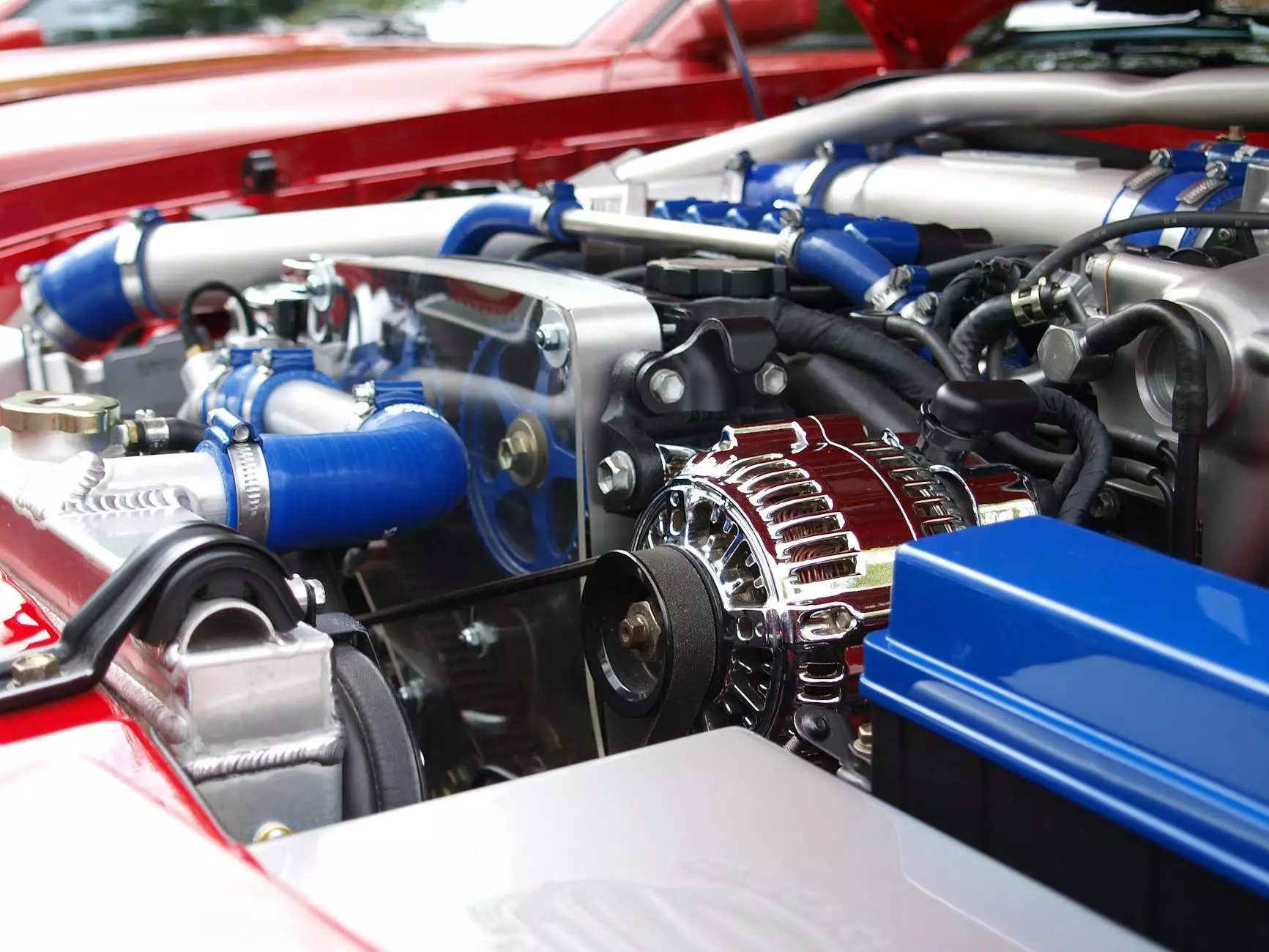Understanding Fuel Pump Manufacturers: The Pillars of Diesel Engine Performance

The evolution of diesel engines greatly relies on high-quality components manufactured by industry leaders. Among these components, fuel pumps play a crucial role. In this article, we will explore the significance of fuel pump manufacturers within the diesel engine parts and spare parts suppliers market, their contributions to engine performance, and emerging trends shaping the industry.
1. The Importance of Fuel Pumps in Diesel Engines
Fuel pumps are essential components in diesel engines. They ensure that the fuel is delivered to the engine at the right pressure and flow rate. This section elaborates on their importance:
- Fuel Delivery: A fuel pump's primary function is to transport fuel from the tank to the engine. Proper fuel delivery is necessary for optimal engine performance.
- Pressure Regulation: Maintaining the correct fuel pressure is essential for efficient combustion, thus affecting power output and fuel consumption.
- Reliability: High-quality fuel pumps manufactured by reputable companies ensure longevity and reliability in all diesel engines.
2. Key Characteristics of Leading Fuel Pump Manufacturers
Choosing the right fuel pump can be overwhelming, given the variety of manufacturers. Here are key characteristics that distinguish industry leaders:
- Innovative Technology: The best fuel pump manufacturers invest in research and development to bring cutting-edge technology to their products. This includes advancements in fuel injection technology that improve efficiency.
- Quality Assurance: High-quality standards, such as ISO certification, are critical for ensuring the durability and performance of fuel pumps.
- Customer Support: Top manufacturers often provide excellent customer service, offering warranties and comprehensive support to their clients.
- Global Reach: Leading manufacturers typically supply a broader range of markets, ensuring compatibility with various diesel engine models.
3. The Role of Fuel Pump Manufacturers in the Diesel Market
Fuel pump manufacturers are key players in the diesel market. Their role extends beyond simply producing components. Here’s how they influence the industry:
3.1. Supply Chain Dynamics
Fuel pump manufacturers work closely with other suppliers to create efficient supply chains. Their role is integral in:
- Producing high-quality components that meet demand.
- Ensuring timely delivery of parts to keep operations smooth.
- Collaborating with diesel engine manufacturers to develop integrated solutions.
3.2. Influence on Diesel Engine Performance
The quality of the fuel pump directly impacts diesel engine performance. Here’s how:
- Higher fuel efficiency, leading to cost savings for operators.
- Enhanced power and torque output from the engine.
- Reduced emissions, contributing to a more sustainable environment.
3.3. Industry Regulations and Standards
Fuel pump manufacturers must adhere to various industry regulations that ensure quality and safety. This includes:
- Environmental regulations that dictate emission levels and fuel standards.
- Automotive industry standards that ensure components are safe and reliable.
- Continuous updates and compliance checks to maintain legal standing.
4. Challenges Faced by Fuel Pump Manufacturers
Despite their vital role, fuel pump manufacturers face several challenges in the industry:
4.1. Technological Advancements
With rapid technological changes, manufacturers must keep pace. This includes:
- Adopting new materials that improve pump efficiency and durability.
- Investing in automation and smart technology for manufacturing processes.
4.2. Market Competition
The market is flooded with manufacturers, creating stiff competition. Players must:
- Differentiate their products through innovations and superior technology.
- Focus on customer experience and after-sales service.
4.3. Supply Chain Disruptions
Global events, such as pandemics or geopolitical tensions, can disrupt supply chains, challenging manufacturers to:
- Develop resilient supply chain strategies.
- Maintain strong relationships with multiple suppliers.
5. Emerging Trends in Fuel Pump Manufacturing
The fuel pump manufacturing sector is continuously evolving. Here are some emerging trends:
5.1. Electrification of Fuel Pumps
As the automotive industry shifts towards electrification, manufacturers are adapting by:
- Designing electric fuel pumps that improve efficiency.
- Integrating fuel pumps with electric vehicle technologies.
5.2. Sustainability Initiatives
Manufacturers are increasingly focused on sustainability through:
- Utilizing recycled materials in production.
- Developing eco-friendly manufacturing practices.
5.3. Advanced Manufacturing Techniques
Technological advancements in manufacturing are leading to:
- Increased automation, reducing labor costs.
- Improved precision in fuel pump production, enhancing quality.
6. Choosing the Right Fuel Pump Manufacturer
When selecting a fuel pump manufacturer, consider the following factors:
- Reputation: Research the manufacturer's track record in delivering quality products.
- Product Range: Look for manufacturers who offer a comprehensive range of fuel pumps compatible with various diesel engines.
- Price vs. Value: Assess whether the cost is justified by the quality and performance of the pumps.
- Warranty and Support: Choose manufacturers that offer solid warranties and customer support systems.
7. Conclusion
Fuel pump manufacturers are at the forefront of diesel engine technology, influencing performance, efficiency, and environmental impact. Understanding their role and selecting the right supplier can significantly enhance the reliability and capability of diesel engines. By staying ahead of industry trends and fostering strong supply chain relationships, these manufacturers continue to lead the way in delivering high-quality fuel pumps that cater to the demands of the modern automotive landscape. In summary, they not only fuel engines but also drive progress in the diesel industry.
For further information and to explore high-quality diesel engine parts, visit client-diesel.com.









